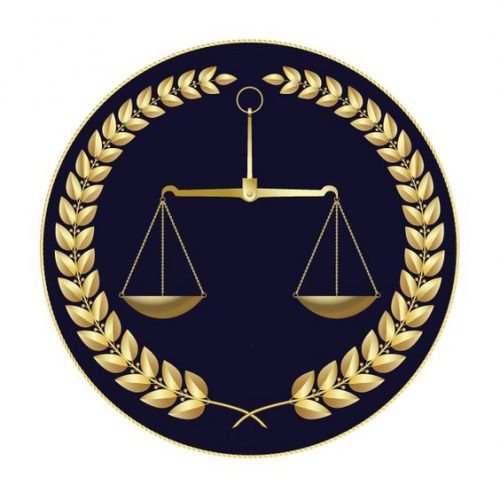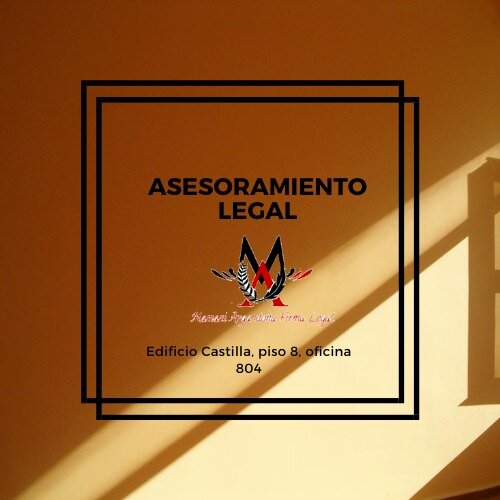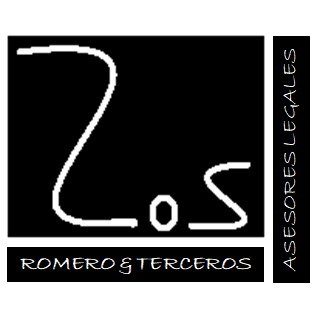Best Water Law Lawyers in Bolivia
Share your needs with us, get contacted by law firms.
Free. Takes 2 min.
Or refine your search by selecting a city:
List of the best lawyers in Bolivia
About Water Law in Bolivia
Water Law in Bolivia refers to the body of legal norms, policies, and institutions that regulate the ownership, use, management, and protection of water resources throughout the country. Bolivia recognizes access to water as a fundamental human right, enshrined both in the 2009 Constitution and through specific legislation such as the National Water Law and related regulatory frameworks. The legal system aims to ensure the sustainable, equitable, and participatory use of water for domestic, agricultural, industrial, and environmental purposes. Given the country’s diverse geography, Indigenous rights, and growing environmental concerns, water law is a dynamic and often complex area involving multiple stakeholders.
Why You May Need a Lawyer
Individuals, communities, and businesses may require legal assistance in various situations related to Water Law in Bolivia. Some of the most common scenarios include:
- Disputes over water rights and access between landowners, Indigenous communities, or users
- Processes for obtaining water use concessions or permits from governmental authorities
- Conflicts relating to contamination or overuse of water sources by industries or third parties
- Legal questions about environmental impact assessments and regulatory compliance for construction, mining, or agricultural projects
- Defense against sanctions for alleged illegal extraction or pollution of water resources
- Negotiations with public utilities regarding service provision, billing, or service interruptions
- Supporting Indigenous or rural communities in asserting traditional or communal water management rights
Because water rights often intersect with property, environmental, and Indigenous rights, a lawyer with experience in Water Law can help clients navigate the complex procedures, defend their interests, and ensure compliance with local laws and international standards.
Local Laws Overview
Water Law in Bolivia is primarily governed by the 2009 Constitution, which establishes water as a public good and recognizes the right to universal access to water services. Important aspects of local Water Law include:
- The state owns and controls all water resources but grants use rights and permits through administrative procedures
- Water is prioritized first for human consumption and domestic use, then for food production, and finally for economic activities
- The Law promotes community participation and recognizes Indigenous and peasant communities’ traditional systems of water management
- Water use for productive purposes or large-scale extraction must be authorized by the relevant authority and may require environmental assessments
- Strict regulations prohibit contamination or depletion of water bodies, lakes, and rivers, especially those of strategic national importance like Lake Titicaca or the Amazon basin
- Resolution of water conflicts often involves administrative processes before specialized agencies such as the Autoridad de Fiscalización y Control Social de Agua Potable y Saneamiento Básico (AAPS)
- Local municipalities play an important role in the provision and regulation of drinking water and sanitation services
Understanding these laws is crucial for safeguarding rights, resolving disputes, and pursuing new development projects that depend on water resources.
Frequently Asked Questions
What is considered a water right in Bolivia?
A water right in Bolivia is an administrative authorization or recognition by the state that allows a person or entity to use a specific quantity of water from a particular source for a defined purpose. These rights do not grant ownership but allow for legal use under certain conditions.
How can I apply for a water use permit?
Individuals or organizations must apply to the competent authority, usually the Ministry of Environment and Water or local municipal offices. The application process may require technical studies, environmental assessments, and proof of intended use.
Are water resources private or public in Bolivia?
All water resources, including rivers, lakes, and aquifers, are public property owned by the state. Private ownership of water is not recognized, though private entities can obtain use rights through the existing legal framework.
What role do Indigenous communities play in water management?
The Constitution recognizes the traditional, communal systems of water management practiced by Indigenous and peasant communities. These systems often coexist with national regulations, and their rights must be respected in decision-making processes.
What happens if my neighbor is polluting a shared water source?
You can report the pollution to the relevant authority, such as the municipal government or AAPS. Legal remedies may include administrative sanctions, compensation for damages, or mandatory remediation. Consulting a lawyer can help you take the correct legal steps.
Are there penalties for unauthorized use or pollution of water?
Yes, unauthorized extraction or contamination of water resources can result in administrative fines, suspension of permits, or even criminal charges, depending on the severity and impact of the infraction.
How are disputes over water rights resolved?
Most disputes are resolved through administrative proceedings before competent governmental bodies like the AAPS or local water authorities. In some cases, disputes may go to court, especially if parties contest administrative resolutions.
Do agricultural users need special permits for irrigation?
Yes, large-scale or non-domestic agricultural use of water typically requires a permit. Small communal or traditional uses by peasant or Indigenous communities may be protected by custom but should still comply with broader water management plans.
Can I lose my water rights?
Water use rights can be revoked if they remain unused for a certain period, if terms of the permit are violated (such as polluting or overusing), or if the public interest demands it. Notification and a fair process are required by law.
What should I do if I want to develop a project that needs significant water use?
Before starting your project, consult with a qualified lawyer to determine legal requirements, necessary permits, and compliance with environmental norms. Early legal support can help avoid costly delays or legal challenges.
Additional Resources
For more information or assistance regarding Water Law in Bolivia, you may contact the following resources:
- Ministry of Environment and Water (Ministerio de Medio Ambiente y Agua): National authority for water policies, permits, and regulation
- Autoridad de Fiscalización y Control Social de Agua Potable y Saneamiento Básico (AAPS): Regulates water and sanitation services, handles disputes and complaints
- Defensoría del Pueblo: Provides support and advocacy on human rights and access to basic services, including water
- Local municipal government offices: Administer drinking water provision, permits, and community consultations
- Non-governmental organizations focused on water rights and environmental justice, such as Fundación Agua Sustentable or Centro de Estudios y Apoyo al Desarrollo Local (CEADL)
Next Steps
If you believe you need legal assistance with a Water Law issue in Bolivia, consider taking the following steps:
- Gather all relevant documentation, such as permits, contracts, correspondence, or evidence of the problem
- Identify whether the issue involves administrative procedures, environmental regulations, Indigenous rights, or civil disputes
- Contact a qualified lawyer with expertise in Water Law and related fields like environmental or property law
- If your situation involves a community or collective interest, organize a meeting for affected parties to discuss concerns and coordinate legal action
- Reach out to the relevant governmental authority or ombudsman for guidance and possible mediation
- Stay informed about your rights and obligations through local seminars, NGO workshops, or official publications on water legislation
Legal support is crucial in navigating the evolving and sometimes challenging landscape of Water Law in Bolivia. Taking timely action and working with experienced professionals can help protect your rights and ensure the sustainable and fair use of the country’s valuable water resources.
Lawzana helps you find the best lawyers and law firms in Bolivia through a curated and pre-screened list of qualified legal professionals. Our platform offers rankings and detailed profiles of attorneys and law firms, allowing you to compare based on practice areas, including Water Law, experience, and client feedback.
Each profile includes a description of the firm's areas of practice, client reviews, team members and partners, year of establishment, spoken languages, office locations, contact information, social media presence, and any published articles or resources. Most firms on our platform speak English and are experienced in both local and international legal matters.
Get a quote from top-rated law firms in Bolivia — quickly, securely, and without unnecessary hassle.
Disclaimer:
The information provided on this page is for general informational purposes only and does not constitute legal advice. While we strive to ensure the accuracy and relevance of the content, legal information may change over time, and interpretations of the law can vary. You should always consult with a qualified legal professional for advice specific to your situation.
We disclaim all liability for actions taken or not taken based on the content of this page. If you believe any information is incorrect or outdated, please contact us, and we will review and update it where appropriate.
Browse water law law firms by city in Bolivia
Refine your search by selecting a city.

















